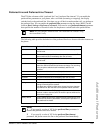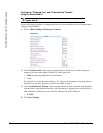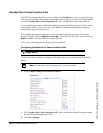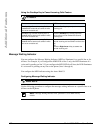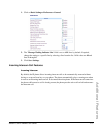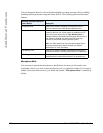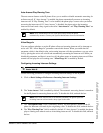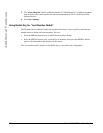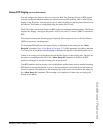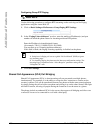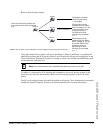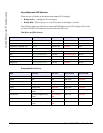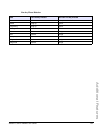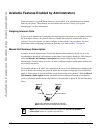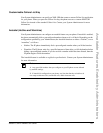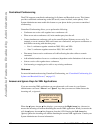
Model 6730i IP Phone User Guide 177
Additional Features
Group RTP Paging (receives RTP streams)
You can configure the phone to allow it to receive a Real Time Transport Protocol (RTP) stream
from pre-configured multicast address(es) without involving SIP signaling. This is called Group
Paging on the IP phones. You can specify up to 5 multicast addresses that the phone listens for on
the network. This feature is configurable using the Aastra Web UI only.
The 6730i in the local network listens for RTP on the preconfigured multicast address. The Phone
displays the “Paging” message to the phone’s LCD. It uses the G711 uLaw CODEC for multicast
RTP.
The recipient can drop the incoming page if required. The recipient can also set Do Not Disturb
(DND) to ignore any incoming pages.
For incoming RTP multicasts, the ringing display is dependant on the setting for the “Allow
Barge-In” parameter. (See “Allow Barge In” on page 175.) If this parameter is disabled, and there
is no other call on the phone, then the paging is automatically played via the default audio device.
If there is an existing call on the phone, the call initially displays in the ringing state. The user has
the option to accept/ignore the call. If the “Allow Barge-In” parameter is enabled, the RTP
multicast call barges in, and any existing calls are put on hold.
If an RTP multicast session already exists on the phone, and the phone receives another incoming
RTP multicast session, the priority is given to the first multicast session and the second multicast
session is ignored. The behavior for the incoming calls in this case is also based on the setting for
the “Allow Barge-in” parameter. The incoming call is handled as if there were an existing call
already on the phone.



